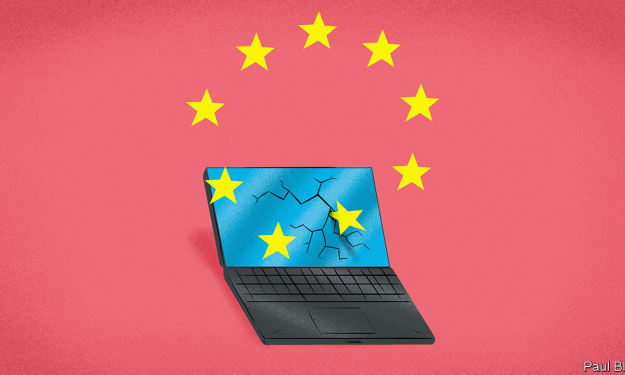How to overcome work-related anxiety and increase the quality of life?
It may not be easy but it's necessary

If you are currently working, then you probably know how it feels to be stressed at a job. No matter how much you admire your job, how satisfying your payment is, how well you get along with your co-workers, or how attractive the overall atmosphere is, at some point, you will feel that your stress level is rising and realize that you need to rest. However, taking a break is not always a solution and working out job-related anxiety is something that is definitely worth paying attention to. The first thing that you should be aware of is that everyone is experiencing job-related stress, every single person has felt devastated but before you start considering quitting the job, you can take into account that there are many scientifically proven methods for increasing the quality of life that make it easier to say no to anxiety.
Imagine your boss has just given you a new task that needs to be done before the end of the day, but you still got a bunch of unfinished assignments. You can’t ask for help because you are struggling to communicate with your colleagues and still have difficulties adapting to the work environment. Your heart starts beating faster, your breath is becoming quicker and suddenly you are surrounded by tension. This is just one of the situations that trigger anxiety. But some other common sources can be low salaries, excessive workloads, few opportunities of growth, lack of social support, work that isn’t challenging enough, or not having control over job-related decisions.
Communicating with multiple people, facing deadlines, and fearing that your effort is never enough for managing the responsibilities are common stressors. But it’s important to be aware that short-term stressful situations are typical and normal, though experiencing constant, long-lasting stress will probably affect your physical and emotional well-being and have a serious impact on your health. It’s especially dangerous for the people who are vulnerable to developing an anxiety disorder which is quite common among the average statistical person. In fact, according to the American Psychological Association (APA), work is a significant source of stress to a majority of the American population. Yet there are several ways to manage work-related stress.
How does your body respond to stress?
One of the most common phrases towards evolutionary psychologists is the “fight-or-flight” response. It’s your body’s automatic response to the new stimulus from the environment which causes your anxiety. The reason is that immediately after a stimulus is perceived as a stressor, the sympathetic nervous system is activated and your response to acute stress is to fight or to flee. It’s an evolutionary developed mechanism that can provide the necessary energy for getting ready to respond to a stimulus and avoid frustrations like losing a job or even worse, developing mental issues.
How can you cope with stress at the workplace?
Harvard Medical School provides us with certain strategies to reduce stress and avoid threats of psychological well-being. These are the skills that are used in CBT - cognitive behavioral therapy which is one of the most commonly used treatments which aims to change one’s pattern of thinking or behaving, restructure their irrational thoughts and cognitive distortions, and overall, change the deformed way we feel about ourselves.
First of all, if you need to say goodbye to uncontrolled stressors you have to learn relaxation Strategies. One of the methods used in CBT is progressive muscle relaxation whose aim is to reduce muscle tension which plays a major role in creating anxiety. All you have to do is to tense a group of your muscles as you breathe in for 2 to 10 seconds and relax them completely as you breathe out and not gradually. There are several different ways of doing these muscle relaxation exercises which are confirmed to be effective by some researches. For example, a 2019 year study suggests that PMR has the beneficial effects of coping strategies in the workplace and helps you reduce your anxiety symptoms.
The next thing that is important in overcoming job-related anxiety is problem-solving. It is an active coping strategy that involves teaching people how to take certain steps while facing a problem. These steps include defining the problem, brainstorming potential solutions, developing a plan, and taking an action. Other than that, you need to concentrate on your aims and reappraise negative thoughts. You shouldn’t jump to negative conclusions like “the boss thinks I am useless”, “I can never finish this job”, “This is something I will never be able to do” or “I don’t belong to this place, I am FED UP”. If you have had one of these phrases in your mind while being at a job then you should start reappraising them and treat them as hypotheses rather than facts and consider other possibilities. You should try to avoid irrational fears and consider your abilities and the pros and cons of the current situation
One of the reasons why you experience stress at the workplace is that you lose the balance between work and your life, lose yourself as well, and blend into a job you do. You should try to differentiate yourself from your work. You have several social roles like being a sister, brother, student, worker, friend, singer, hiker, etc., Once you finish your job, you should leave the role of a worker at your office and become something else. But people usually don’t find a work-life balance, creating tension and conflict. It’s not only about spending time with your family, but you should spend time with yourself too. Work-life balance is a healthy mix of time spent on your desired activities and fulfilling your goals. So, when you are eating dinner with friends, avoid thinking about the unfinished task at your work and postpone worrying about them for later.
For most people, the hardest thing is dealing with authoritative figures. To do this, you should have a clear understanding of your supervisor’s expectations and their responsibilities too. Have a conversation and ask them what they expect from you in terms of job performance and remove uncertainty from your relationship, remember that being a boss doesn’t exclude having work-related anxiety and maybe talking about your problems to you both, connecting to them and expressing empathy will relieve you from stress.
Other than this, there are many things you can do to overcome your work-related fears and feel more comfortable. Remember to pay attention to time management, don’t forget your hobbies, your loved ones, socialize, and talk loudly about your problems. And if you don’t believe that this is just positive psychology which has nothing to do with science, you’re badly mistaken, several studies showed a strong connection between thinking positively and improved quality of life.
Mindfulness
Modern psychologists often use a strategy of mindfulness to help the clients relieve stress and focus completely on themselves. Mindfulness is a newly established term in psychology that has roots in Buddhism. It is often considered as a form of meditation and can be described as a basic human ability to be fully aware of where we are and what we are doing to stop being overwhelmed by what’s happening around us. It helps us concentrate on ourselves, feel ourselves, and gain insight through observing our minds. Mindfulness reduces stress and enhances work performance because when you’re aware of your goals and aims, feel free from anxiety, then you are ready to do your job effectively, fulfill your aims and increase your well-being.
New research indicates that there is a high correlation between mindfulness and work-related stress and practicing mindfulness lowers blood pressure, lowers tension, and reduces anxiety. Mindfulness helps us to train the brain to break the habits of worrying about the future of engaging self-criticism which usually are essential parts of job-related stress and this is why we consider it one of the main strategies of overcoming work-related anxiety.
Effects of uncontrolled stress
Managing stress is important for our health as it is not gonna disappear itself and unresolved stress will probably leave traces on our mind and harm our health. A stressful work environment can lead to several problems like headaches, insomnia, and other sleep disturbances, difficulty concentrating, short temper, etc., Even more, chronic stress can contribute to depression, obesity, heart diseases, and other health conditions. The main reason for these conditions is that people often try to cope with unhealthy ways, such as overeating, smoking, or abusing drugs which can affect your energy, health, social relationships, motivation, and productivity. All these things usually reduce the quality of life in a way that we don’t even notice. Because of this, you shouldn’t leave your stressors uncontrolled, pay attention to all the strategies that are used to reduce anxiety and stress, and following these steps will probably reduce poor job performance and help you increase your overall psychological and subjective well-being.
Conclusion
In conclusion, thinking carefully about the reason for our stressor can help us reduce work-related anxiety. As the pandemic continues, people are becoming more and more frustrated and the situation at the workplace is getting worse, as it’s harder to communicate with each other through zoom and other online platforms and work effectively from home without all the necessary job-specific things. But you must remember that if you don’t pay enough attention to these worries, short-period stress can get more serious and cause serious mental problems which will be hard to overcome. This is why you should try to prioritize self-care, keep things in perspective, manage your time and budget wisely, and be aware that your job isn’t who you are. In that way, your performance at work will be higher and suddenly you will realize that your quality of life has greatly improved.






Comments
There are no comments for this story
Be the first to respond and start the conversation.